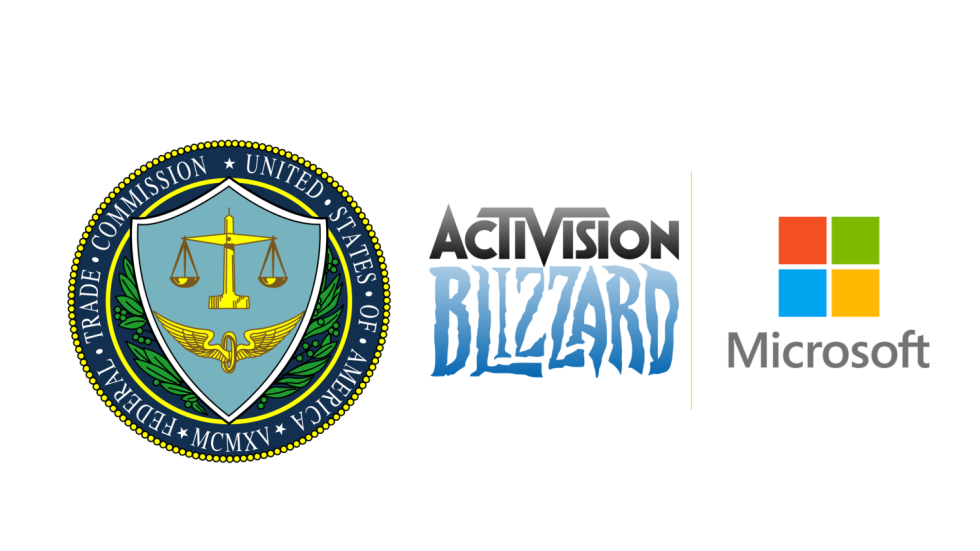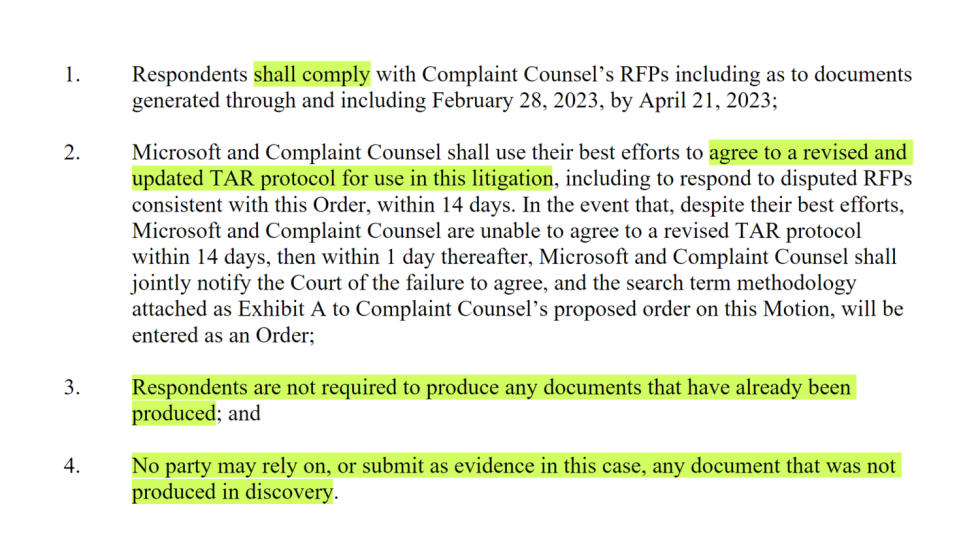Recent filings show that the Federal Trade Commission, or FTC, is having difficulty obtaining certain documents from Microsoft and Activision. The FTC is a U.S. federal agency responsible for enforcing consumer protection and antitrust laws.The FTC’s difficulties in connection with the Microsoft-Activision merger are particularly evident in the problems they are having in obtaining relevant documents. As a result, FTC attorneys representing the complaint against the merger and seeking to block it have filed a motion to compel production of documents.

In statements, the FTC has emphasized that Microsoft has been largely uncooperative, refusing to provide any documents at all in a total of 24 requests. This reluctance on Microsoft’s part significantly complicates the FTC’s work, as the agency relies on the documents to accurately assess the merger’s impact on competition. Microsoft’s refusal to produce documents may be attributed to the company’s potential concerns about the merger’s impact on competition, but the FTC must ensure that it has all relevant information to make an informed decision. It remains to be seen how the situation will develop further. However, the FTC will undoubtedly take all necessary steps to ensure that it has all relevant information to make an informed decision on whether or not to allow the Microsoft-Activision merger to proceed.
In a recent lawsuit between Microsoft and Activision-Blizzard, motions were filed that complainants’ attorneys refer to as RFPs. The requests ask companies to reexamine millions of documents previously deemed least relevant. Lawyers for Microsoft and Activision-Blizzard argued against the motion, calling it duplicative and unduly burdensome. The respondents emphasized that the complainants’ attorneys had already received a voluminous second request that gave them access to 17 million pages of documents, and argued that the additional requests were disproportionate and would impose an undue burden on the companies. The Respondents’ argument shows that they believe that the Complainants’ requests are disproportionate and unreasonable. They argue that companies have already provided extensive information and that further requests would create an undue burden. With respect to the disclosure requests received by Microsoft and Activision-Blizzard, certain terms were used to describe compliance with these requirements. These terms have been used to describe the massive information gathering process involved in disclosure.
One of the terms that has been used in this context is “resilient.” This means that companies will seek to defend against disclosure by using legal means to prevent certain information from being disclosed. It can also refer to companies protecting their data to prevent it from falling into the wrong hands. Another term that has been used frequently in this context is “denial.” This refers to companies’ decisions not to disclose certain information, either because they feel it needs to be protected or because they feel disclosure would do them more harm than good. This may also mean that companies are unwilling to respond to certain requests or provide information that is considered irrelevant or inappropriate. Overall, these expressions are an important part of understanding the process of disclosure and how companies can respond. It is important to note that companies are generally not opposed to disclosure per se, but rather are eager to protect their data and information to ensure that it does not fall into the wrong hands or is used in ways that could harm them.
Defendants’ counsel also pointed to an agreement they had reached with counsel for the FTC Complainants, as well as certain portions of this lawsuit. Under this agreement, Microsoft would use its technology-based review to produce documents. The FTC wants Microsoft to conduct a re-search for specific search terms, a process Microsoft says is repetitive, difficult and expensive. Now Administrative Law Judge Michael D. Chappell has issued a ruling on the motion.
ALJ Chappell is not convinced by Microsoft’s “unconvincing” objections. Here is a summary of the judge’s order:
-
Microsoft and Activision-Blizzard ordered to comply with all of complaint counsel’s RFP document requests
-
Document date range is through and including Feb 28, 2023
-
Microsoft and Activision-Blizzard must deliver these documents by April 21, 2023
-
Respondents must work with complaint counsel to revise the tech used to find and produce relevant documents
-
If the two cannot find a solution, Microsoft and Activision-Blizzard must use the search terms methodology proposed by the FTC
-
Both ATVI and MSFT say this methodology is unduly burdensome and costly
-
Respondents do not have to produce duplicate documents (however this was always a condition made by complaint counsel and respondents”.
-
No party may rely on, or submit as evidence in this case, any document that was not produced in discovery.”
ALJ Chappell also denied part of the Federal Trade Commission’s (FTC) attorney’s request, saying Activision-Blizzard had already agreed to produce the relevant documents.microsoft and Activision-Blizzard have objected to requests for documents from FTC attorneys, and now must still comply with 81 such requests. The two companies argue that these calls are too broad and do not provide useful information.
The Federal Trade Commission (FTC) is an independent U.S. federal agency responsible for enforcing consumer protection laws and overseeing antitrust and competition issues. FTC attorneys requested documents from Microsoft and Activision-Blizzard related to their business practices and competitive practices.However, Microsoft and Activision-Blizzard argued that these requests were too broad and would not provide useful information. It is common for companies to object to such requests because they often require a large amount of data and information that is time-consuming and costly to collect and review.Nevertheless, Microsoft and Activision-Blizzard must now comply with the FTC attorneys’ demands and provide the requested documents. It remains to be seen what information the FTC will glean from these documents and whether this will have an impact on companies’ business practices.
Overall, this case shows how important it is for companies to keep an eye on their business practices and competitive conditions and ensure that they comply with the requirements of the competent authorities.
Source: TweakTown































Kommentieren